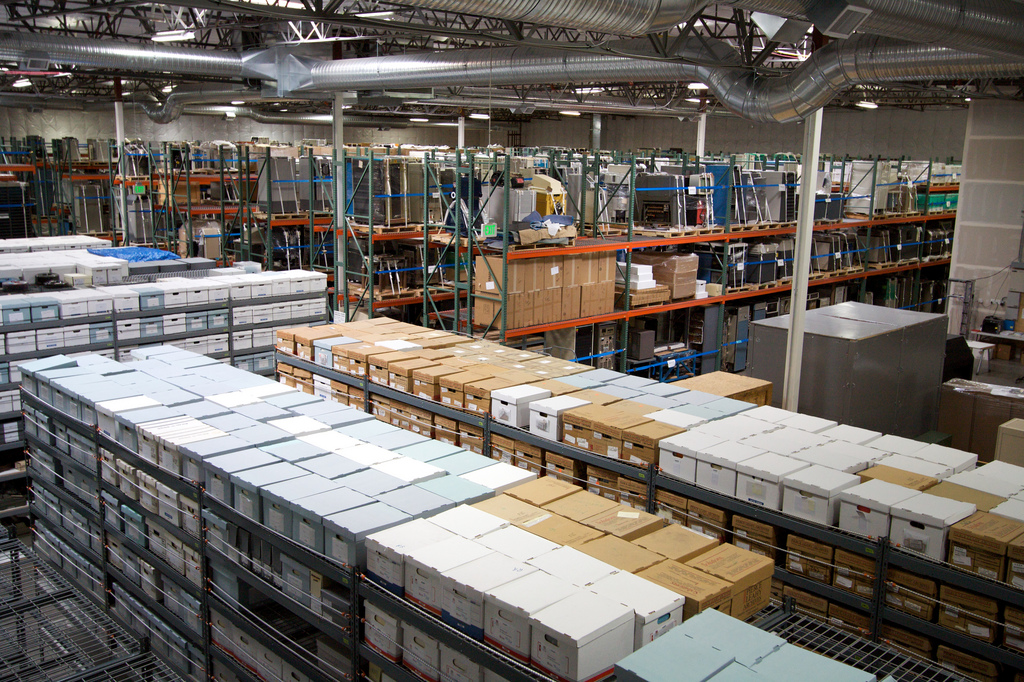Relationships are everything, especially when you’re trying to get someone else to do something for you. Will you ever find that perfect partner? Someone willing to store your junk? Someone willing to take orders at a moment’s notice? Someone with their ship together?
These are the questions many e-retailers ask themselves as they search for a 3PL partner. 3PL is short-hand for third-party logistics provider, and, for many merchants, their service is invaluable and highly desirable. A part of outsourced fulfillment, a 3PL’s chief service is to take care of your entire back-office operation: your inventory storage, fulfillment, and shipping. E-retailers ship their inventory over to ’em, they store it all, and the e-retailer relays orders to the 3PL for them to ship to the customer.
Playing 30 Questions
Given the costly hassle and complex time-sink that fulfillment can become, it’s not surprising that many merchants are interested in working with 3PLs. And, as if handing off fulfillment practices wasn’t enough of a perk, 3PLs have a positive effect on a merchant’s numbers, too. A study on the State of Logistics Outsourcing by Capgemini, Penn State, Penkse, and more, provides a couple of bottom-line-friendly stats:
- Working with a 3PL can lead to an 11% drop in average logistics costs
- 3PLs reduce average inventory cost (likely your largest investment) by 6%
What traits are merchants looking for as they court 3PLs? The study’s got some information on that:
- 55% rate 3PLs on their ability to optimize performance
- 49% rate 3PLs on their experience in the merchant’s industry
- 42% rate 3PLs on the quality and length of their relationship
With those stats in mind, here are the questions you may want to ask on the first date if you’re looking to work with one.
How Often Will You Talk to Me?
Communication is key to any relationship, especially if you’re an e-retailer paying a 3PL to pick, pack, and ship orders promptly. How quickly a 3PL receives and fulfills an order is dependent on a couple of things: the quality of their technology and industry relevance.
Technology
If you want your 3PL partner to quickly and seamlessly accept orders and fulfill, it’s all down to technology. When you scope out a 3PL, understand their process. Do they prefer that a merchant emails daily orders their way? Maybe they only accept phone calls just so they can hear the sound of your voice.
More tech-savvy 3PLs (always a good sign) are open to using APIs to automatically communicate order information. Essentially, a 3PL will integrate with a merchant’s sales channel(s) so that any arriving order can be relayed their way without the manual back-and-forth of emails or calls. Just be sure that their IT strategy aligns with your own; confirm that they can connect with you on a purely business level.
Also, it never hurts to ask about how they see themselves in the future — they better have ambition if they’re going to be your partner for years to come! Understand as best you can whether or not they’re continually investing in new technology to better optimize their process and meet the needs of their partners.
Industry Relevance
Does your potential 3PL enjoy doing the same things as you? Similar passions are important, after all. Get an idea of what types of businesses a 3PL is working with — if the 3PL is in business with merchants in a similar market, that’s a great sign.
It’s preferable (but not totally necessary) that a 3PL be in your space. Their current processes would already be similar to your own, so handling your orders would be just like handling current clientele. Bringing you on board and getting orders from shelf to customer door would be business as usual, and the less hiccups, the better.
It also makes a difference for your precious products. If you’re selling items that have certain requirements, like a temperature-controlled environment or careful handling due to high fragility, a 3PL that’s already accustomed to doing so is desirable.
Will You Grow With Me?
Through the ups and the downs, your 3PL needs to support you. Not emotionally, but as you scale. An e-retailer using a 3PL is more than likely dealing with an order volume that’s significant enough to cover the many costs involved with outsourced fulfillment, but guaranteeing that your 3PL is flexible to change is still crucial.
Let’s say you’ve been unexpectedly killing it over the summer and are now forecasting a holiday selling season with far more demand than usual. You’ll obviously be buying more inventory as a result, and your 3PL needs to be able to accommodate it. Once the holidays wear off and demand shrinks back to normal, the 3PL should accommodate that change just the same. If they can’t handle fluctuations — especially during high volume seasons — that’s a red flag.
Where Do You Live?
A long distance relationship may be fine between you and your 3PL (although you’ll be paying a fortune to ship inventory to a 3PL in Nevada if you live in New York), but keep your customer base in mind as you choose.
Where are the majority of your customers purchasing? You’ll likely want to be located near that area, but your 3PL definitely needs to be. The greater distance between your average customer and the 3PL, the more expensive shipping is going to be. Picking a 3PL in close proximity is priority.
How Willing Are You to Try New Things?
Nobody likes an inflexible stick in the mud that loves using the word “no.” One of the downsides to working with a 3PL is that you’ll have less control over the entire process because you’re outsourcing it. A 3PL is used to doing things in whatever way they feel is most efficient.
If you have specific requests, like using branded packaging or adding branded inserts into the package, a 3PL is perfectly allowed to say no. If that branding is a crucial element to you, you’d better select a 3PL willing to work with your demands.
How Much Do You Cost?
Let’s stop pussyfooting around this — this is more than just a relationship. As mentioned earlier, this is a mutual transaction, so be prepared for some expenses.
The costs of a 3PL can get a little complex and costly. Pricing structures can be based on a variety of different factors, and no 3PL pricing plan is the same. Here are several to expect:
- Set-up fees
- Storage fees
- Pick and pack fees
- Order and weight handling fees
- Shipping costs
- Receiving fees
- Returns processing fees
For more specifics on each, check out this section of our post on outsourced fulfillment. For even more specifics, go ask a prospective 3PL for a quote. Be sure that the 3PLs pricing doesn’t squeeze your margins to the point of suffocation.
Look to Others
It can be tough to accurately gauge your 3PL on a first date, even with all these questions, so consult the juicy gossip on the grapevine. What do the 3PL’s ex-customers have to say about them? Some reviews are extremely useful for understanding the first-hand experiences of merchants that have worked with a potential 3PL before, and they can reveal more red flags to be aware of as you consider your options.
At the end of the day, like in any relationship, trust between you and your 3PL is sure to build over time as you work with them. Just be sure to always measure whether the partnership is worth it, and that both of you are getting what you need out of it.
Header image: Flickr, Marcin Wichary




